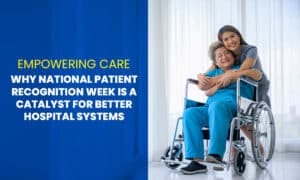
Family Medicine is dedicated to delivering comprehensive, ongoing care for individuals and families across all age groups. Managing the vast array of medical records, preventive care, and chronic disease tracking can be overwhelming for practitioners.
A robust Family Medicine EHR simplifies this by offering tailored features designed to improve documentation, care coordination, and patient management. Let’s explore how this system enhances care delivery and practice efficiency.
Key Features of Family Medicine EHR
Chronic Disease Management Tools:
Family Medicine EHRs offer specialized modules for managing chronic conditions like diabetes, hypertension, and asthma. These tools provide tracking features, care plans, and alerts to ensure timely follow-ups and interventions.
Telehealth Integration:
Modern Family Medicine EHRs integrate seamlessly with telehealth platforms, allowing practitioners to provide virtual consultations and remote monitoring, enhancing access to care for patients in remote areas.
Medication Management:
Built-in e-prescribing and medication tracking features ensure accurate prescriptions, reduce errors and provide alerts for potential drug interactions or allergies.
Family and Social History Tracking:
Since family medicine often involves treating entire families, the EHR can link family members’ medical histories for better insight into hereditary conditions and patterns.
Decision Support Tools:
Family Medicine EHRs include evidence-based decision support systems, providing guidelines and recommendations at the point of care to assist with diagnoses and treatment plans.
Seamless Lab and Imaging Integration:
Integration with labs and imaging centres allows providers to order tests, receive results, and analyse data directly within the EHR, reducing delays and enhancing efficiency.
Care Plan Collaboration:
Enable collaborative care plans among healthcare teams, ensuring coordinated efforts for patient wellness, especially for those with complex medical needs.
Patient Portals:
EHR systems often include patient portals where individuals can access their records, request appointments, or communicate securely with their providers, fostering patient engagement.
These features empower family medicine practices to deliver comprehensive, efficient, and patient-centred care.

Benefits of Using Family Medicine EHR
Improved Patient Outcomes:
Access to comprehensive patient data ensures accurate diagnosis and personalized care, leading to better health outcomes.
Enhanced Care Coordination:
EHRs facilitate seamless communication among specialists, labs, and pharmacies. This ensures that all stakeholders are aligned in delivering holistic patient care.
Administrative Processes:
Features like automated scheduling, billing, and reminders reduce the administrative workload, allowing staff to focus on patient engagement.
Data-Driven Decision Making:
Family Medicine EHR systems use analytics to identify patterns in patient data, helping providers make informed clinical decisions.
Future Perspective of Family Medicine EHR
AI-Driven Patient Care:
Future systems will incorporate AI to predict patient needs, enabling pre-emptive care strategies.
Effective Interoperability:
With advancements in health IT, Family Medicine EHRs will integrate effortlessly with other systems, ensuring better data sharing across healthcare providers.
Advanced-Data Analytics:
The future of EHR lies in leveraging big data for predictive insights, enabling providers to anticipate patient needs and optimize care.
Conclusion
Family Medicine EHR systems are indispensable tools for modern healthcare. They enhance patient care, streamline workflows, and support data-driven decisions.
To stay ahead in delivering exceptional care, adopting an EHR tailored to Family Medicine is essential. Ready to take the next step? Explore our solutions for comprehensive healthcare management today.
Looking to learn more about how EHR systems transform healthcare for different specialties? Check out our other blogs and discover designed solutions for your practice!
👉 Explore Our EHR Blogs
Paediatric EHR: Specialized Care for Children’s Health Needs – Ezovion





